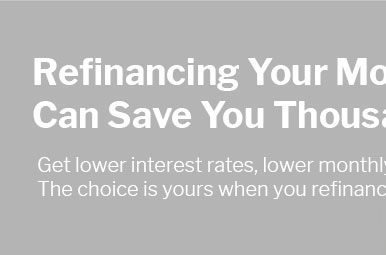 |
 |
 |
 |
 |
|---|
 |
 |
|
|---|---|---|
 |
 |
|
 |
 |
|
 |
 |
 |
 |
 |
 |
Understanding Mortgage Refinance Rates in North CarolinaThe world of mortgage refinancing can be a labyrinthine venture, replete with financial jargon and complex decision-making processes. In North Carolina, a state known for its rich history and diverse economy, homeowners are increasingly considering mortgage refinancing as a viable option to optimize their financial standing. But what exactly are mortgage refinance rates, and how do they impact the Tar Heel State's residents? To put it simply, mortgage refinance rates refer to the interest rates applied when you replace your existing mortgage with a new one, often to achieve a lower interest rate, reduce monthly payments, or alter the loan term. In North Carolina, these rates are influenced by a variety of factors including the state's economic health, Federal Reserve policies, and individual borrower profiles. It's noteworthy that North Carolina's housing market has been buoyant, thanks to urban growth in cities like Charlotte and Raleigh. This urban expansion has led to a competitive lending environment, often resulting in favorable refinance rates for homeowners. However, it's crucial to keep an eye on national trends, as shifts in the Federal Reserve's policies can cause ripple effects that alter local rate landscapes. While navigating this financial terrain, potential refinancers should consider the following:
One cannot overlook the subtle yet profound impact of a lender's experience and reputation. In North Carolina, regional lenders often provide personalized service, understanding the nuances of local property values and market conditions, which can be an invaluable asset. It's always advisable to conduct thorough research and perhaps even engage with a financial advisor to tailor a refinancing strategy that aligns with one's long-term goals. Moreover, while the idea of reducing monthly payments is enticing, homeowners must also consider the long-term implications. Extending the loan term could result in paying more interest over time, so it’s essential to strike a balance between immediate savings and future financial obligations. In conclusion, mortgage refinance rates in North Carolina are a dynamic component of the broader economic landscape. Homeowners should remain informed, proactive, and strategic, leveraging local market trends and their personal financial health to make informed refinancing decisions. As with any financial undertaking, diligence and thoughtful consideration are key. Remember, the goal is not just to refinance, but to refinance wisely. https://www.creditkarma.com/home-loans/mortgage-rates/north-carolina
Your actual annual percentage rate and loan terms will be determined by the advertising partner's assessment of your creditworthiness and other factors after ... https://www.mortgagenewsdaily.com/mortgage-rates/north-carolina
Track live mortgage rates ; 81.2 %. 30 Year Fixed. 1.990%. 3.16%. 6.250% ; 14.4 %. 15 Year Fixed. 1.750%. 2.78%. 5.500% ; 4.4 %. 20 Year Fixed. 2.000%. 3.15%. https://www.usbank.com/home-loans/mortgage/mortgage-rates/north-carolina.html
Annual percentage rate (APR) represents the true yearly cost of your loan, including any fees or costs in addition to the actual interest you pay to the lender.
|
|---|